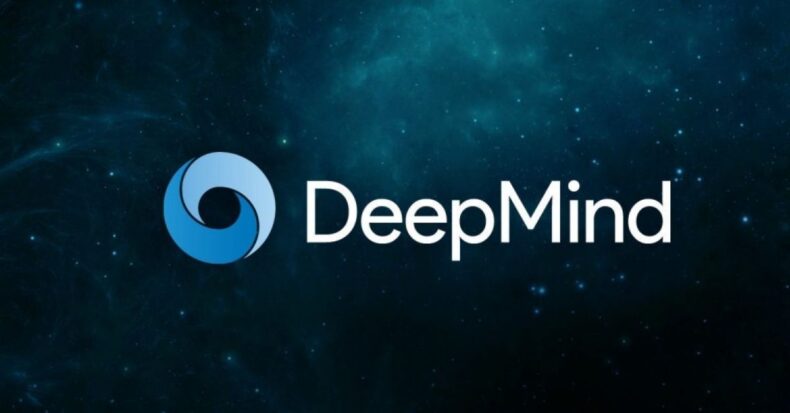Overview
Over recent years, an insight of AI has hogged the limelight among modern technological marvels. So much so that it finds various applications in our day-to-day life — ranging from YouTube videos recommendations to weather forecasts, home automation, etc. It’s as if we’re sharing some symbiotic relationship with it.
With great power comes great responsibility. For a unique niche of technology to thrive, there should be a dedicated ecosystem of startups, organizations, or businesses entrusted with the responsibility to ideate ways to keep the interest alive.
We’ve seen this with Edison’s idea of direct current electricity when he decided to establish his own company to make it publicly available.
Akin to that, modern artificial intelligence also has companies working round the clock to make it more and more accessible and easier to use. DeepMind is one such initiative.

What is Deep Mind?
DeepMind is an AI startup founded by Demis Hassabis, Shane Legg and Mustafa Suleyman in 2010. They’d met at University College London’s Gatsby Computational Neuroscience Unit.
Initially, the founders started working on this by teaching computers how to play games, which were popular during the ’70s and ’80s.
Although the initial approach towards it was pretty rudimentary, it has significantly evolved since then and has made some revolutionary contributions to the field (discussed later in the article).
The initiative grabbed the attention of capital venture firms Horizon Ventures and Founders Fund and entrepreneurs like Scott Bannister, Peter Thiel & Elon Musk, all of whom invested substantially in it.
On 26th January 2014, Google proclaimed that it would acquire the company with a valuation of $500 million.
The following year it became a wholly-owned subsidiary of Alphabet Inc., Google’s parent company.
Notable Contributions & Achievements
DeepMind boasts of sustaining an exemplary model of reinforcement learning, a sub-domain about AI.
For the uninitiated, reinforcement learning constitutes machine learning on its own by interacting with a real-time environment, and deriving experiences, usually as humans tend to do.
Scientists at DeepMind’s AI lab claim to have developed “Open-Ended Learning That Leads To Generally Capable Agents.” A new project incorporates a 3D environment and deep reinforcement learning agents to solve some real-world issues.
A direct result of this was the development of AlphaGo, a computer program that can learn the strategic game of Go on its own.
It made headlines in 2016 when this game was able to defeat Lee Sedol, a former world champion, in a five-game match.
It was a replication of IBM’s Deep Blue’s success in 1997 when it defeated the then chess champion and grandmaster, Gary Kasparov.
Subsequent versions of this program turned out to be even more powerful and were based on the heuristics of the Monte Carlo tree search algorithm.
To fully comprehend this achievement, it is imperative to understand that computers previously had only amateurish experience in this game.
Additionally, it was considered difficult for AI to master it since it had infinite possibilities, making it prohibitively difficult to apply traditional AI methods like brute force.
AlphaGo evolved into a more general program known as AlphaZero, which was not pre-programmed like Deep Blue or AlphaGo.
It had the tenor to learn Go, chess and shogi (Japanese chess) by playing against itself and eventually outwit humans.
DeepMind’s significance lies in leveraging the extensive use of artificial neural networks coupled with convolutional neural networks to further self-learning systems that have potential applications in self-driving cars using computer vision, sensors and actuators.
The problem of protein folding is one of the most sophisticated problems ever encountered in science. DeepMind began working on it in 2016, and by 2020, it achieved another laudable and praiseworthy milestone.
Its AlphaFold venture was able to predict the molecular and physical structure of nearly all proteins (basically folding) in the human body with unprecedented precision.
It correctly read the varied sequences of amino acids and DNA and got a result similar to laboratory experiments.

DeepMind has also majorly contributed to personalized app recommendations on the Google Play Store, analysis of automatic eye scans to detect blindness, among others.
Controversies
Even with the stellar accomplishments, DeepMind does have its share of controversies.
DeepMind’s founder Mustafa Suleyman has been accused of bullying but was still promoted to VP of AI Policy by Google, according to a report by Morning Brews.
He has also gotten a seat at Advanced Technology Review Council (ATRC), which Bloomberg touts to be “the actual power.”
DeepMind allegedly has had access to admission, discharge, transfer, emergency, pathology and allied data of three London hospitals working under the aegis of NHS to seek better outcomes in various health conditions.
This cause a massive uproar, and subsequently, a complaint was filed to the Information Commissioner’s Office, imploring that the data be encrypted.
Conclusion
It is indisputably irrefutable that DeepMind has played an indispensable role in reforming the way we perceive the potential applications and usefulness.
But with the progress happening in leaps and bounds, proper regulation and enforcement of a robust code of ethics are also very much needed to keep a balance.













